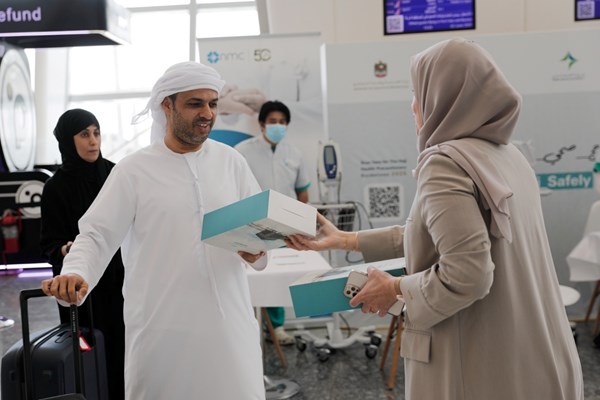As thousands of Muslims across the UAE prepare for the sacred journey of Hajj, the country has introduced a new and innovative way to support them — virtual Hajj awareness programs. These programs are designed to help pilgrims understand every step of the spiritual journey before they even set foot in Makkah.
This new initiative combines tradition with technology, allowing pilgrims to mentally, spiritually, and physically prepare for Hajj through online platforms, apps, and interactive sessions. The aim is to reduce confusion, increase safety, and make the entire experience more meaningful.
What is the Purpose of These Virtual Programs?
The UAE government launched the virtual Hajj awareness programs to help pilgrims perform their rituals with confidence and knowledge. Hajj is one of the five pillars of Islam, and every Muslim who is physically and financially able is required to perform it at least once in their lifetime. But for many, especially first-time pilgrims, the journey can feel overwhelming.
From knowing the right prayers to understanding where to go and what to do at each location, there’s a lot to learn. These new virtual platforms are built to guide participants through each stage of Hajj — from Ihram and Tawaf to standing at Arafat and offering prayers at Muzdalifah.
Who is Behind the Initiative?

The UAE’s General Authority of Islamic Affairs and Endowments (GAIAE) is leading the program, with support from other national institutions and religious experts. They have developed virtual workshops, video guides, mobile applications, and online training sessions that are available in multiple languages, including Arabic, English, and Urdu.
The authorities also partnered with Islamic scholars and experienced Hajj guides to ensure the information shared is accurate, respectful of religious teachings, and easy to understand.
What Do the Virtual Programs Include?
Pilgrims can access several types of educational content from the comfort of their homes or while traveling. Here are the main features included in the virtual Hajj awareness programs:
- Live and Recorded Workshops: These sessions walk pilgrims through each step of Hajj, explaining what to do, when to do it, and how to avoid common mistakes.
- 3D Virtual Tours of Holy Sites: Using simple graphics, these tours help people visualize places like the Kaaba, Mina, Arafat, and Jamarat before they arrive.
- Mobile Applications: Pilgrims can download apps that offer real-time updates, checklists, du’as (prayers), and maps.
- Question-and-Answer Sessions with Scholars: Attendees can submit questions in advance or during live webinars and get clear answers from trusted religious experts.
- Safety Guidelines: Programs also teach people how to stay safe during Hajj — from health advice and crowd management to travel tips.
Preparing Pilgrims for a Safe and Spiritual Journey
UAE officials believe that better awareness can lead to a smoother and more meaningful pilgrimage. With the help of virtual education, pilgrims can now prepare months in advance. These platforms are especially useful for older participants or those with health concerns, who may find the Hajj process physically demanding.
Doctors and health specialists are also involved in the programs, giving advice on how to stay hydrated, deal with extreme heat, and manage health conditions like diabetes or high blood pressure during the trip.
The program is not just about rules and logistics; it also focuses on the emotional and spiritual importance of Hajj. Many sessions highlight the inner peace and renewal that come from this once-in-a-lifetime journey.
Special Focus on First-Time Pilgrims
A large number of pilgrims from the UAE are performing Hajj for the first time. For them, virtual programs serve as a valuable tool to reduce anxiety and improve understanding. Many of these pilgrims may not have access to in-person guidance or family members with past Hajj experience.
By learning through interactive videos, checklists, and 3D simulations, they feel more comfortable and prepared. The sessions also include reminders about the deeper values of Hajj — patience, humility, and unity among Muslims.
Encouraging Digital Access and Inclusion

In a country that is highly digital, offering virtual access makes it easier for people from all backgrounds to learn. The programs are mobile-friendly and available across social media platforms, ensuring wide reach. Whether someone lives in a remote area or has a busy schedule, they can still benefit from the guidance.
The UAE government has also made sure that content is accessible to people with disabilities. For instance, some videos come with subtitles, and the apps are compatible with screen readers for the visually impaired.
Positive Feedback from the Community
Early feedback from pilgrims and religious leaders has been very encouraging. Many people say that they feel more confident and connected to their faith after attending the virtual sessions.
Religious leaders across the UAE have praised the initiative, saying it helps pilgrims perform Hajj with more knowledge, respect, and care. Families also find peace of mind knowing that their loved ones are better prepared for this important journey.
A participant from Sharjah, who is preparing for her first Hajj this year, shared her thoughts:
“I was worried about forgetting something or doing a ritual wrong. After attending the virtual workshops, I feel so much more confident. The step-by-step guides and expert answers really helped me understand what Hajj is all about.”
Looking Ahead: A Modern Approach to an Ancient Practice
This initiative shows how technology can support faith in meaningful ways. Hajj is a deeply spiritual event, but modern tools can enhance the way people experience it — without taking away from its sacredness.
The UAE’s virtual Hajj awareness programs set an example for other countries looking to support their pilgrims. It’s a mix of tradition and innovation, carefully designed to make sure that every Muslim embarking on this journey does so with clarity, confidence, and peace of mind.
Also read: GCC Countries Issue Important Hajj Travel Advisories for 2025


